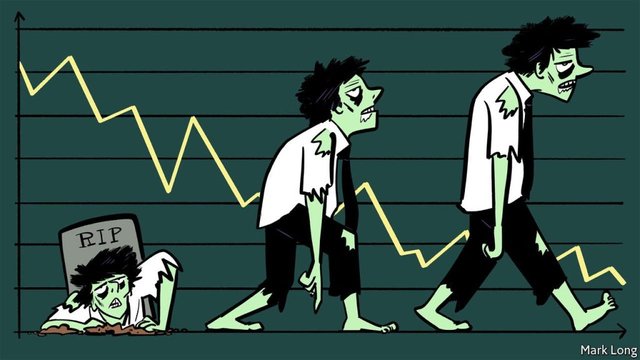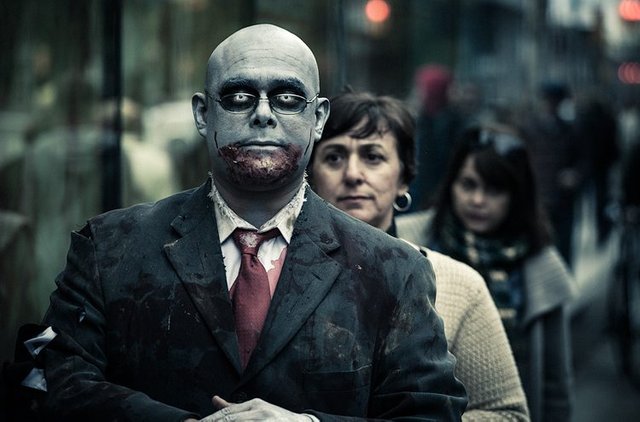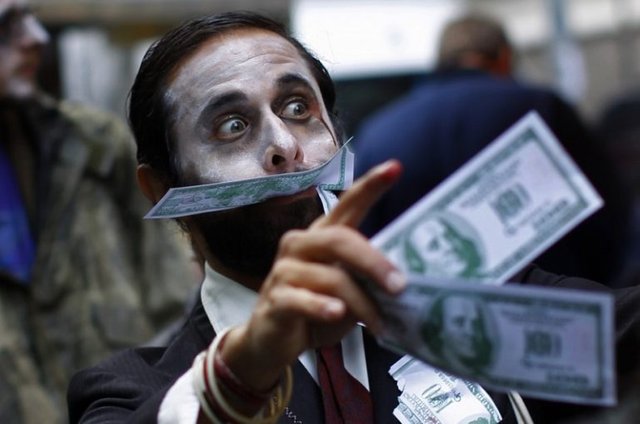Have you ever heard of zombie companies?

Just like in zombie movies, where killers are neither alive nor dead, there are zombie companies that are in a gray area, between bankruptcy and making a profit.
In the last few period, this term has become popular and needs explanation, especially since the term zombie is not common in a serious business environment.
What are zombie companies?

Zombies in the business world are companies that make just enough money to keep operating and service debts but are unable to pay their debts.
Such companies, since they dispose of overheads (such as wages, rent, interest payments on debt, for example), do not have excess capital to invest in to stimulate growth.
These companies rely in particular on banks for financing, which is essentially their life support. Therefore, it is no wonder that they are known as the zombie arrows, and their arrows are called “zombie arrows.”
Inevitable failure and risky investments
Zombies often fail and fall prey to high costs associated with debt or certain operations, such as research and development.
The company may lack the resources for the capital investment that creates growth. And if a zombie company employs so many people that its failure becomes a political issue, it may be considered “too big to fail”, which makes it continue to operate and unable to meet its financial obligations, and enters the stage of a risky investment, thus its share prices will decline until eventually bankrupt.
When did the term zombie corporation first appear?

Zombies were first talked about in reference to companies in Japan during the country's "lost decade" in the 1990s after the asset price bubble burst.
During this period, companies were dependent on bank support to stay in business, even though they were bloated, ineffective, or failing.
Economists argue that the economy could have been better served by allowing such poorly performing firms to fail and leave the market.
The term "zombie" was picked up again in 2008 in response to US government bailouts that were part of the Troubled Asset Relief Program (TARP).
Zombies are the first to fall!
When the market changes, the zombie company will be the first to fall victim, unable to meet its primary obligations because high interest rates make its debt more expensive to service.
While keeping such companies in the market through their support from relief programs or government aid, economists believe that the use of these resources is misleading because it hinders the growth of successful companies, and thus prevents job creation.